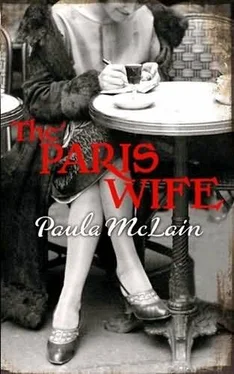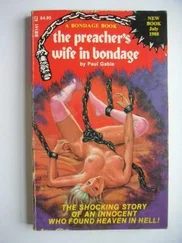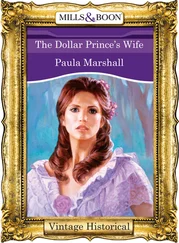At the tail end of August, Paris was virtually deserted. Anyone who could be anywhere else was, but Pauline Pfeiffer and Kitty had both remained in town for work. The three of us often met for dinner, sometimes with Bumby in tow and sometimes only after he was tucked into bed with Marie Cocotte to watch him. Although I initially felt uneasy around Pauline and Kitty as a pair-these fashionable, independent, and decidedly modern girls-at bottom they were both wonderfully frank and unfussy. That was why they liked me, too, they insisted, and I began to trust it.
Occasionally Pauline’s sister Jinny met us out in the cafés, and I found the two sisters quite funny together, as if they were a very chic vaudeville act with a shorthand of dark little jokes. They held their liquor well and didn’t embarrass themselves or others and always had interesting things to say. Jinny was unattached, but if Kitty was right about her preferring women, that made sense. It was harder to see why Pauline hadn’t yet married.
“It was all but settled with my cousin Matt Herold,” she said one day when I pressed her for more details. “I’d even modeled dresses and tasted half a dozen cakes.” She shuddered. “They all tasted like cake, of course.”
“Did something terrible happen between you?” I asked.
“No. That might have made some things easier, actually. I just didn’t think I loved him enough. I liked him. He would have been a wonderful provider, and a good father, too. I could see the whole thing, but never felt it. Not really. I wanted something grand and sweeping.”
“The kind of love you find in novels?”
“Maybe. That makes me incredibly stupid, I suppose.”
“Not at all. I love romance. Women these days seem too advanced for it.”
“It’s very confusing, knowing what you want when there are so many choices. Sometimes I think I’d just as soon ditch marriage and work. I want to be useful. ” She paused and laughed at herself. “I think I read that in a novel somewhere, too.”
“Maybe you can have everything you want. You seem very clever to me.”
“We’ll see,” she said. “And in the meantime we’ll be two bachelor girls.”
“Swimmingly free?”
“Why not?”
It was funny to think of myself this way. Ernest most certainly wouldn’t approve, and I wondered what he’d say about my spending so much time with Pauline. If Kitty was too decorative, Pauline would be as well. She was the type of professional beauty he generally despised. Not only did she talk endlessly about fashion, she was always maneuvering her way toward the most interesting people and sizing them up to see how they might be of use to her, her dark eyes snapping, her mind’s wheels turning shrewdly. There never seemed to be any spontaneity with Pauline. If she saw you, she meant to. If she spoke to you, she’d already planned what to say so it came out sharply and perfectly. I admired her confidence and was a little in awe of it, maybe. She had that sense of effortlessness that took, in the end, a great deal of effort. And though I never knew quite what to say around other women like her-Zelda, for instance-under Pauline’s fine clothes and good haircut, she was candid and sensible, too. I knew she wouldn’t unravel on me at any moment and quickly came to feel I could count on her.
In the middle of September, Ernest came home from Madrid looking exhausted and triumphant all at once. I watched him unpacking his cases and couldn’t help but feel astonished at what he’d accomplished. There were seven full notebooks, hundreds and hundreds of pages, all done in six weeks.
“Are you finished then, Tatie?”
“Nearly. I’m so close I almost can’t make myself write the end of it. Does that make sense?”
“Can I read it now?”
“Soon,” he said. He drew me toward him in a long crushing embrace. “I feel like I could sleep forever.”
“Sleep, then,” I said, but he pulled me toward the bed and began to tug at my clothes, his hands everywhere at once.
“I thought you were tired,” I said, but he kissed me roughly, and I didn’t say anything more.
A week later, he’d completed the first draft, and we went to the Quarter to celebrate with friends. We met at the Nègre de Toulouse, and everyone was in high spirits. Scott and Zelda turned up, as did Ford and Stella, Don Stewart, and Harold and Kitty. There were a few moments of awkwardness as everyone waited to see what was what. Pamplona had ended so painfully, but after the drinks came and several glasses were downed quickly, medicinally, the party loosened up. Ernest had more whiskey than he should have, but behaved himself until the very end of the evening when we met Kitty on the way out the door.
“Good show on your book, Hem.”
“Thanks,” he said. “It’s full of action and drama and everyone’s in it.” He gestured toward Bill and Harold. “I’m ripping those bastards all to hell, but not you, Kitty. You’re a swell girl.”
His voice was so cold and cutting, Kitty’s face went white. I pulled him out the door by his arm, feeling mortified.
“What?” he said. “What did I do?”
“You’re drunk,” I said, “let’s talk about it tomorrow.”
“I plan on getting drunk tomorrow, too,” he said.
I simply kept marching him toward home, knowing there would be remorse in the morning, along with a titanic headache.
I was right.
“Don’t be hurt by what I told Kitty,” he said when he finally woke near lunchtime, looking green. “I’m an ass.”
“It was a big night. You should get some dispensation.”
“Whatever I said, the book’s the book. It’s not life.”
“I know,” I said, but when he gave me the pages to read, it took me no time at all to realize that everything was just as it had happened in Spain, every sordid conversation and tense encounter. It was all nearly verbatim, except for one thing-I wasn’t in it at all.
Duff was the heroine. I’d known and expected this, but it was troubling just the same to see her name over and over. He hadn’t changed it yet to Lady Brett. Duff was Duff, and Harold was Harold, and Pat was a drunken sot, and everyone was in bad form except the bullfighters. Kitty was in the book, too-he’d lied about that-in a very unflattering role. Ernest had made himself into Jake Barnes and made Jake impotent, and what was I supposed to think of that? Was that how he saw his own morality or cowardice or good sense or whatever it was that had kept him from sleeping with Duff-as impotence?
But if I could step away from these doubts and questions even slightly, I could see how remarkable the work was, more exciting and alive than anything he’d ever written. He’d seen the good story in Pamplona when I’d felt only disaster and human messiness. He’d shaped it and made it something more; something that would last forever. I was incredibly proud of him and also felt hurt and shut out by the book. These feelings existed in a difficult tangle, but neither was truer than the other.
I read the pages in a state of anticipation and dread and often had to stop and set down the manuscript and right myself again. Ernest had been working so intently and in such solitude that any delay in getting an opinion was killing him.
“Is it any good?” Ernest said when I’d finally finished. “I have to know.”
“It’s more than good, Tatie. There’s nothing like it anywhere.”
He smiled with relief and elation and then let out a small whoop. “I’ll be damned,” he said. Bumby was on the floor nearby, chewing on a hand-carved toy locomotive that Alice and Gertrude had given him. Ernest swooped him up and lifted him toward the ceiling, and Bumby squealed happily, his apple cheeks filling with air.
Читать дальше












